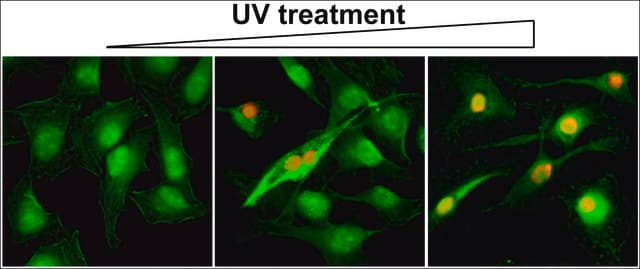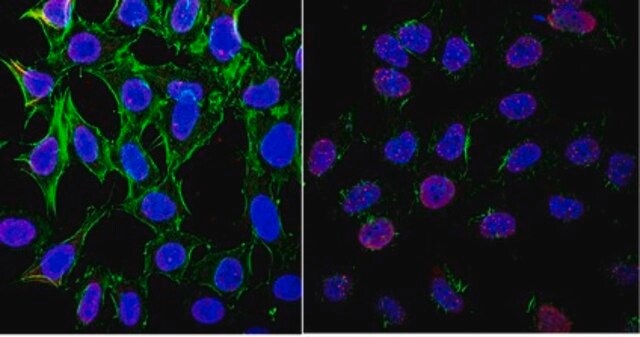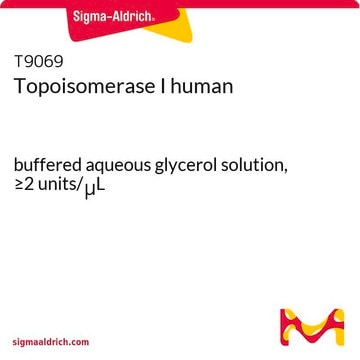MAB3806
Anti-ATM phosphoSer1981 Antibody, clone 10H11.E12
clone 10H11.E12, Chemicon®, from mouse
Synonyme(s) :
Ataxia Telangiectasia Mutated
About This Item
Produits recommandés
Source biologique
mouse
Niveau de qualité
Forme d'anticorps
purified immunoglobulin
Type de produit anticorps
primary antibodies
Clone
10H11.E12, monoclonal
Espèces réactives
mouse, human
Fabricant/nom de marque
Chemicon®
Technique(s)
immunocytochemistry: suitable
immunoprecipitation (IP): suitable
western blot: suitable
Isotype
IgG1κ
Numéro d'accès NCBI
Numéro d'accès UniProt
Conditions d'expédition
wet ice
Modification post-traductionnelle de la cible
phosphorylation (pSer1981)
Informations sur le gène
human ... ATM(472)
Description générale
Spécificité
Immunogène
Application
Epigenetics & Nuclear Function
Cell Cycle, DNA Replication & Repair
Immunocytochemistry: Foci are detected in irradiated human and mouse fibroblasts.
Immunoprecipitation: The antibody immunoprecipitates ATM from irradiated human and mouse cells.
Optimal working dilutions must be determined by end user.
Forme physique
Stockage et stabilité
This antibody and certain aspects of its use are disclosed and claimed in pending U.S. Patent Applications published as U.S. Patent Publication Nos. 2003/0077661 and 2003/0157572.
Remarque sur l'analyse
Irradiated normal Human fibroblasts (no reactivity against non-irradiated cell extracts)
Autres remarques
Informations légales
Clause de non-responsabilité
Vous ne trouvez pas le bon produit ?
Essayez notre Outil de sélection de produits.
En option
Code de la classe de stockage
10 - Combustible liquids
Classe de danger pour l'eau (WGK)
WGK 2
Point d'éclair (°F)
Not applicable
Point d'éclair (°C)
Not applicable
Certificats d'analyse (COA)
Recherchez un Certificats d'analyse (COA) en saisissant le numéro de lot du produit. Les numéros de lot figurent sur l'étiquette du produit après les mots "Lot" ou "Batch".
Déjà en possession de ce produit ?
Retrouvez la documentation relative aux produits que vous avez récemment achetés dans la Bibliothèque de documents.
Notre équipe de scientifiques dispose d'une expérience dans tous les secteurs de la recherche, notamment en sciences de la vie, science des matériaux, synthèse chimique, chromatographie, analyse et dans de nombreux autres domaines..
Contacter notre Service technique








